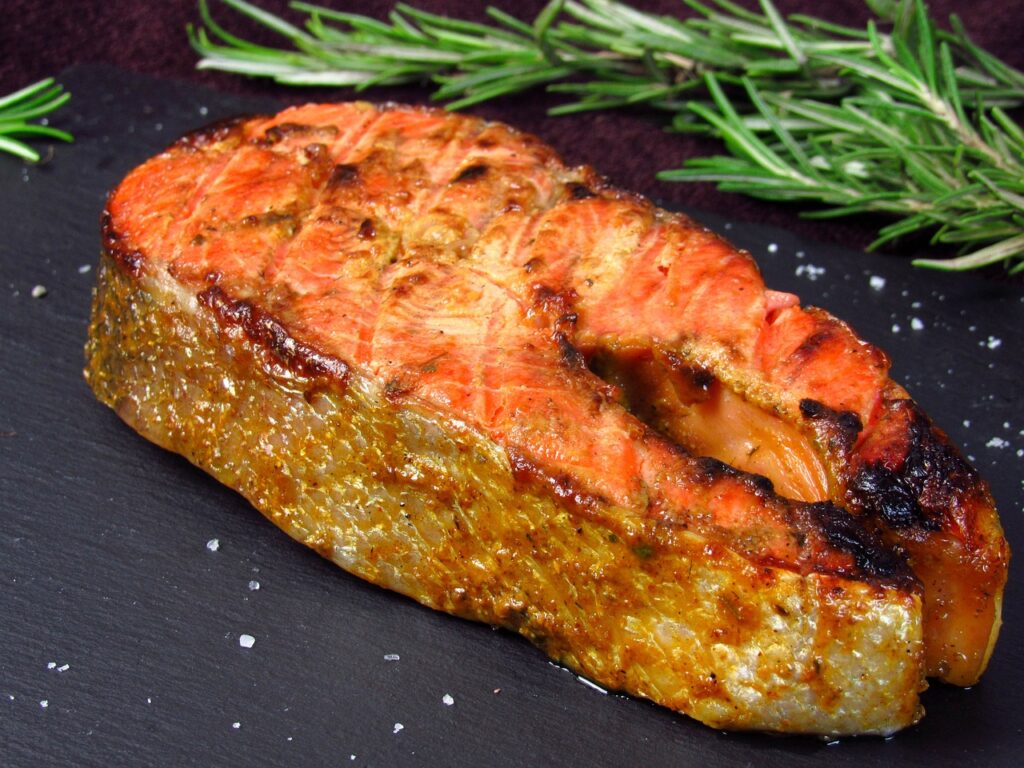The Carnivore Diet: A Comprehensive Guide to Health Benefits, Research, and Delicious Recipes

The Carnivore Diet—also known as the all-meat or zero-carb diet—has gained popularity in recent years for its bold claim: to promote health and weight loss by eliminating all plant-based foods. Proponents argue that by focusing exclusively on animal products like beef, pork, chicken, eggs, and fish, the body can thrive on protein and fat, while avoiding the potential inflammation and digestive issues that some people experience with plant-based foods. Check out this carnivore diet book for beginners to get you started.
But what does the science say? Can the carnivore diet really lead to better health outcomes, particularly in the context of chronic diseases and illness? In this blog, we’ll explore the benefits of the carnivore diet, research findings on its effects on various diseases, and share simple, tasty recipes for breakfast, lunch, dinner, and snacks.
What is the Carnivore Diet?
The carnivore diet is a strict, animal-based eating plan that eliminates all plant foods, including fruits, vegetables, grains, legumes, and nuts. It focuses solely on meat, fish, eggs, and some animal-derived products like dairy (if tolerated). The main concept behind the carnivore diet is that humans thrive on a diet primarily composed of protein and fat, as our ancestors did. Check out this carnivore diet book for beginners to get you started.
Some key aspects of the carnivore diet include:
- Elimination of carbohydrates: No grains, legumes, or starchy vegetables.
- Focus on animal protein: Beef, pork, chicken, turkey, and fatty fish like salmon.
- Full-fat options: Emphasis on fatty cuts of meat and full-fat dairy for energy.
- Zero plant-based foods: No fruits, vegetables, nuts, or seeds.
Benefits of the Carnivore Diet

- Weight Loss and Fat Loss
A major benefit of the carnivore diet is weight loss. By cutting out carbs, many people experience reduced hunger and cravings, leading to a natural reduction in calorie intake. Additionally, the high-protein content of the diet can promote fat loss by increasing metabolic rate and encouraging fat burning.
- Research: A study published in Obesity (2013) found that high-protein, low-carb diets lead to greater fat loss compared to low-fat diets, due to increased satiety and metabolic efficiency.
Obesity Research Study
- Improved Insulin Sensitivity and Blood Sugar Control
Many people with type 2 diabetes or insulin resistance report improved blood sugar control on a carnivore diet. Since the diet is devoid of carbohydrates, it helps prevent spikes in blood glucose levels, improving insulin sensitivity over time.
- Research: A 2018 study in Diabetes Research and Clinical Practice found that low-carb diets improve blood sugar control and insulin sensitivity in patients with type 2 diabetes.
Diabetes Research Study
- Reduced Inflammation
The carnivore diet has been praised for its potential to reduce inflammation. By eliminating foods that can trigger autoimmune responses, such as grains and legumes, some people find that symptoms of conditions like arthritis, eczema, and autoimmune disorders improve dramatically.
- Research: A study published in The Journal of Clinical Rheumatology showed that a strict carnivore diet helped reduce markers of inflammation in people with rheumatoid arthritis.
Rheumatology Research
- Gut Health and Digestive Improvement
While the carnivore diet may seem extreme, many people report improved digestion and relief from conditions like IBS, leaky gut, and gastritis. The diet cuts out fiber, which can be irritating for some people with digestive issues, and focuses on foods that are easy to digest.
- Research: Some evidence suggests that a meat-based diet may reduce symptoms of irritable bowel syndrome (IBS) and may promote gut healing in people with leaky gut.
Gut Health Research
- Mental Clarity and Focus
Adopting a carnivore diet can also improve cognitive function and mental clarity. Many people experience better focus, reduced brain fog, and an enhanced mood due to the diet’s high-fat, low-carb nature, which supports stable energy levels throughout the day.
- Research: A study published in Neuropsychopharmacology (2017) showed that ketogenic and low-carb diets can improve mood and mental clarity.
Neuropsychopharmacology Study
Carnivore Diet for Specific Conditions
1. Autoimmune Diseases
The carnivore diet has shown promise for people with autoimmune diseases like rheumatoid arthritis and psoriasis. By removing foods that can trigger immune responses, many people experience significant reductions in symptoms.
2. Cardiovascular Health
While there are concerns about the diet’s high saturated fat content, some studies suggest that a carnivore diet may improve heart health by lowering blood pressure, improving cholesterol levels, and reducing inflammation.
- Research: A study in the American Journal of Clinical Nutrition (2019) concluded that low-carb diets may improve cholesterol profiles by increasing HDL (good cholesterol) and reducing triglycerides.
Cardiovascular Health Study
3. Cancer Prevention
Emerging research suggests that reducing carbohydrate intake may have anticancer effects. Tumor cells often rely on glucose for fuel, so a low-carb, high-fat diet could potentially slow cancer progression.
- Research: A 2020 study in The Lancet Oncology showed that a ketogenic diet could enhance cancer treatment by lowering glucose levels and depriving tumors of fuel.
Cancer Study
Carnivore Diet Recipes: Breakfast, Lunch, Dinner, and Snacks
Here are some simple, nutritious recipes to help you stay on track with your carnivore diet:
Breakfast: Steak and Eggs

Ingredients:
- 1 ribeye steak or any preferred cut of beef
- 2 eggs
- Salt and pepper to taste
- 1 tbsp butter (optional)
Instructions:
- Season the steak with salt and pepper.
- Heat a pan over medium-high heat and cook the steak to your desired level of doneness.
- In the same pan, fry the eggs in butter until the yolks are still soft or cooked through, depending on preference.
- Serve the steak alongside the eggs. Enjoy a high-protein, high-fat breakfast to kickstart your day!
Lunch: Carnivore Beef Burgers

Ingredients:
- 1 lb ground beef (80/20 or 70/30 for more fat)
- Salt and pepper to taste
- Optional: Beef bacon or cheese (for those who tolerate dairy)
Instructions:
- Form the ground beef into patties.
- Season with salt and pepper on both sides.
- Heat a pan over medium heat and cook the patties until desired doneness (about 3-4 minutes per side for medium).
- For added flavor, top with beef bacon or a slice of cheese.
- Serve the burger patties with extra beef bacon if desired. No buns necessary!
Dinner: Grilled Salmon with Butter

Ingredients:
- 2 salmon fillets
- 2 tbsp butter
- Salt and pepper to taste
- Lemon wedge (optional)
Instructions:
- Preheat the grill to medium-high heat.
- Season the salmon fillets with salt and pepper.
- Grill the salmon for 3-4 minutes per side until the fish is cooked through.
- Serve with a dollop of melted butter and a squeeze of lemon if desired.
Snacks: Beef Jerky and Pork Rinds

Ingredients:
- Homemade or store-bought beef jerky (preferably sugar-free)
- Pork rinds (choose brands without added sugars or preservatives)
Instructions:
- Enjoy beef jerky and pork rinds as satisfying, carnivore-friendly snacks. They’re perfect for on-the-go munching and provide a quick protein boost!
Find over 2000 recipes with this carnivore book now!
Carnivore Diet: At-A-Glance Benefits Table
| Benefit | Effect on Health | Research |
|---|---|---|
| Weight Loss | Natural fat loss and reduced cravings | Obesity Journal 2013 PubMed |
| Improved Insulin Sensitivity | Reduced blood sugar spikes and enhanced insulin function | Diabetes Research and Clinical Practice 2018 PubMed |
| Better Digestion | Relief from IBS, leaky gut, and other digestive disorders | Gut Health Research 2017 PubMed |
| Mental Clarity | Improved focus, reduced brain fog, and stable energy | Neuropsychopharmacology 2017 PubMed |
| Reduced Inflammation | Less joint pain, improved symptoms of arthritis and autoimmune diseases | Journal of Clinical Rheumatology 2015 PubMed |
Final Thoughts: Is the Carnivore Diet Right for You?
The carnivore diet offers numerous potential benefits, especially for those struggling with weight loss, insulin resistance, inflammation, and gut issues. It may seem restrictive, but many find it to be a sustainable way to nourish the body while avoiding common food triggers. To help you make your decision, check out this book on the carnivore transition diet book.
As with any diet, it’s important to consult with a healthcare professional before making drastic changes, especially if you have underlying health conditions. That said, for many people, the carnivore diet can be a powerful tool for reclaiming health and vitality.
Resources & Citations:
- The Carnivore Diet: A Guide to Animal-Based Living – Dr. Shawn Baker
Website - The Effects of Low-Carb Diets on Insulin Sensitivity – Diabetes Research and Clinical Practice (2018)
PubMed - The Benefits of a Low-Carb Diet on Inflammation – Journal of Clinical Rheumatology (2015)
PubMed - The Role of Diet in Gut Health – Gut Health Research (2017)
PubMed
As an Amazon Associate, we earn from qualifying products!
